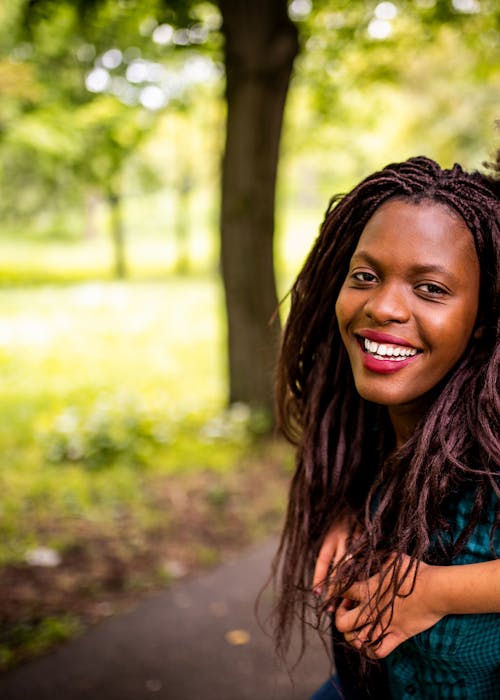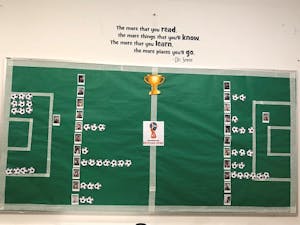

El Nido: Preparing families for the future in Washington Heights
Insights
July 20, 2018

When we interviewed residents of northern Manhattan for our report, Celebrating Strengths, Addressing Needs: Community Driven Solutions To Improve Well-Being In Northern Manhattan, one of the biggest concerns we heard was around a lack of access to information and resources. The families we spoke with were all laser-focused on making sure their children have everything they need to thrive. But often, they have to travel all over upper Manhattan for different programs and services, many times navigating the systems in a language different from their own (nearly 40 percent of residents in Washington Heights are limited English speakers, and in nearly a quarter of households, no one over the age of 14 speaks English “very well”). Throughout our focus groups, residents consistently expressed a desire for a more comprehensive approach to meeting the needs of their families.
El Nido, a faith-based family support program based out of Christ Church Washington Heights, is stepping up to help fill in that gap. El Nido’s goal is to help families break the cycle of poverty through a two-generation approach that helps both mothers and babies get the support they need. “We are holistic and support our families as they navigate the hard job of being a parent,” said Holly Fogle, a co-founder of the program.
That means that families can come to El Nido for a range of supports, including ESL classes with childcare, personalized parenting coaching and emotional support, community connections and networks, and financial assistance. Families who live at or below the poverty line in the Washington Heights/Inwood area come to El Nido through referrals from community partners, word-of-mouth from friends and neighbors, or by simply walking by and seeing the program’s signs.
Expectant parents start their relationship with the program in the mother’s third trimester, where they begin weekly or monthly visits with a social worker that continue until the child is three years old. These visits allow the social worker to provide real-time coaching, modeling, and feedback and give families an opportunity to ask questions and receive information about whatever is on their minds, from developmental milestones and nutrition to sleep and safety.
In addition to personal support, El Nido creates spaces for families with similarly aged children to connect with one another. Several WhatsApp groups have formed to allow parents to make plans to meet up for yoga classes and playdates in the park, share photos, and trade tips about everything from summer camp opportunities for older children to community events happening nearby. “The kids are really getting the chance to grow up together,” said Monika Estrada Guzman, El Nido’s program director. “We see them not only every week but every holiday and in the summer, and the older siblings of the kids in the program get the chance to get to know each other and connect too.”
These mutual support groups are a huge component of the program. They provide the babies a place to play, thrive, and reach developmental goals. They also create space for community partners and city agencies to provide families with workshops and resources related to health, safety, domestic violence, immigration rights, green markets, nutrition resources, and other topics related to child development. “Psychoeducation is a HUGE part of our mutual support groups,” Monika said. “We want to empower our mothers with as much knowledge and resources as possible. We know information is power!”
Cultural connections and education are also an important piece of the program. Among the 60+ families that El Nido serves, four different Latin American countries are represented, each with distinct dialects and cultural traditions (“we pronounce ‘banana’ four different ways here,” Monika said.). That diversity gives families opportunities to learn from one another and about other cultures while also uniting around the broader culture they share.
El Nido’s literacy initiatives are a key part of that learning, where families come together to read books about people that look like them, such as Round is a Tortilla. They also learn about social justice movements and read books about civil rights heroes like Rosa Parks.
“When we read Round is a Tortilla, there was a really great discussion about identity with the moms that came out of that,” Monika said. “Those kinds of conversations and helping moms think critically about learning and identity and watching the babies develop language and vocabulary is definitely one of the highlights of the program for me.”
To start to build their own home libraries and continue reading outside the program, families get to choose ten books a quarter to take home, as well as a developmentally appropriate toy. This has been particularly helpful for the reading challenge that took place over the past month during the World Cup, where families raced to rack up hours of reading and collectively read more than 500 hours.
“It’s really empowering to see how excited the kids get about their books and for them to have the opportunity to see themselves reflected in the stories and understand the resiliency of the Latino narrative,” Monika said.
El Nido also builds out a financial support plan for each of its families to help them map out goals that will bring them more stability, whether that means taking English classes, opening a bank account, obtaining a GED (our report found that nearly 30% of adults in Washington Heights lack a high school diploma), or another avenue. The program also recently partnered with New Women New Yorkers, which helps young immigrant women learn about professional culture in the United States and prepare for the workforce.
“We have one mom who has developed a love of yoga, and the program is going to invest in her yoga teacher training and help her get certified in trauma sensitive yoga,” Monika said. “She’ll become a bilingual yoga instructor, which is desperately needed in this area, and become an entrepreneur and hopefully we’ll be able to hire her back to teach yoga at El Nido. That’s what we are really trying to do at El Nido – empower parents to connect with one another and build a community that will last after they graduate from the program.”



